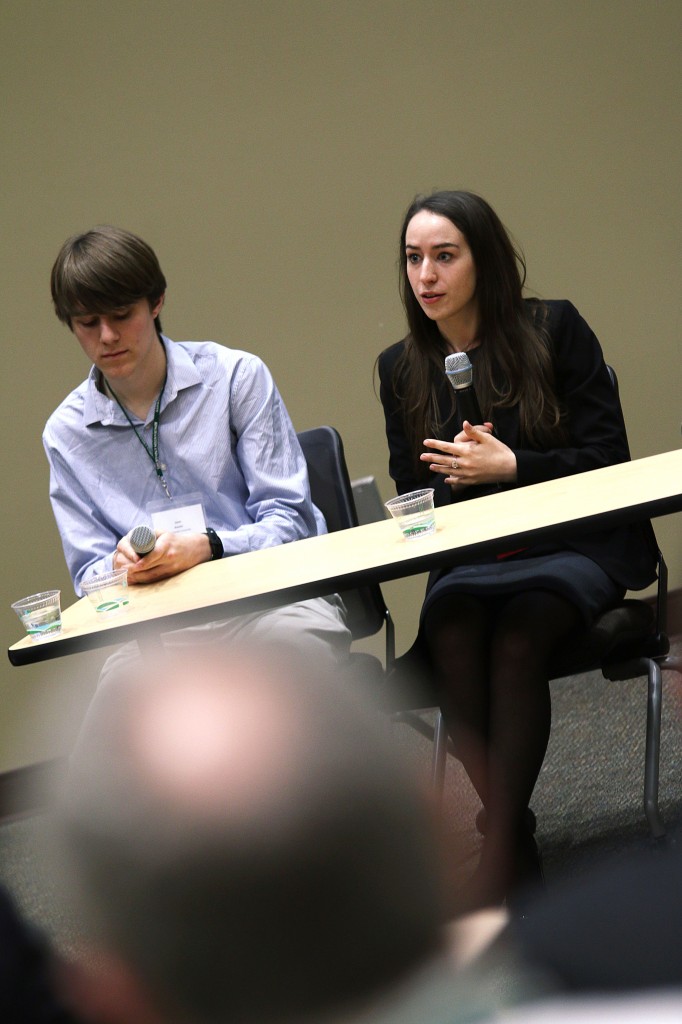
Real world problems were scaled down Friday as panelists discussed technological and practical solutions at Binghamton University’s fourth annual Innovation Day.
Hosted in the Innovative Technologies Complex (ITC), the event featured a graduate student poster session, two separate panels discussing topics ranging from education to climate change and self-driving cars.
According to Per Stromhaug, assistant vice president for innovation and economic development, this year’s event had a more specific focus than in years past.
“We’re talking about energy and health and all those issues, but with the topic in mind of ‘what is this all going to look like 25 years from now?’” Stromhaug said.
Keynote speaker, columnist and Binghamton native Kevin Maney discussed “big data,” or information too large to analyze using traditional methods that requires users to rely on trends and patterns instead. He detailed some of its applications, such as how software company True Fit helps determine what clothing size fits best for different clothing retailers and consumers.
Maney emphasized that technological innovation has been rapidly expanding and affecting more parts of people’s lives.
“The bigger picture is that the technologies that we have are exploding right now, like big data, cloud computing … these handheld phones in our pocket are changing so many things,” Maney said. “Every aspect of life is going to be affected by it.”
Mathias Vuille, an associate professor of atmospheric and environmental sciences at the University of Albany, spoke about climate change. He discussed the implications of a warmer planet, which can lead to a decreasing water supply and an increase in ticks carrying Lyme disease.
“We have changed our climate,” Mathias said. “Not intentionally, but we did.”
BU President Harvey Stenger led one panel with Jason Andrews, superintendent of Windsor Central School District, and Heather Briccetti, president and CEO of the Business Council of New York State. The speakers discussed issues ranging from potential problems of technology in education to texting in class and financing schools.
“How you fund K-12 school districts is a big issue, and nobody wants to touch it,” Stenger said. “You can see the problems it creates when you have a very poor school district and a very rich school district right next to each other. These kids are going to struggle, and [those] kids will do much better.”
The other panel discussed the past, present and future of teaching methods, and the costs of going to school for teaching. It consisted of BU Scholars Jason Anesini, a freshman majoring in biochemistry; Tatiana Requijo, a sophomore majoring in biology; and Bridget Murphy, a senior double-majoring in psychology and business administration.
“I think it’s important to discuss this when evaluating the current future of education,” Murphy said. “To look backwards to see what worked then and where we’ve come from, and also look to the future and sort of project what will happen next.”
According to Steve Czarnecki, associate director at the Center of Excellence at BU, the day provided a good look at the bigger picture of technology.
“We all get caught up in the day-to-day life,” he said. “This is an opportunity to step back, take a look at the bigger picture.”


